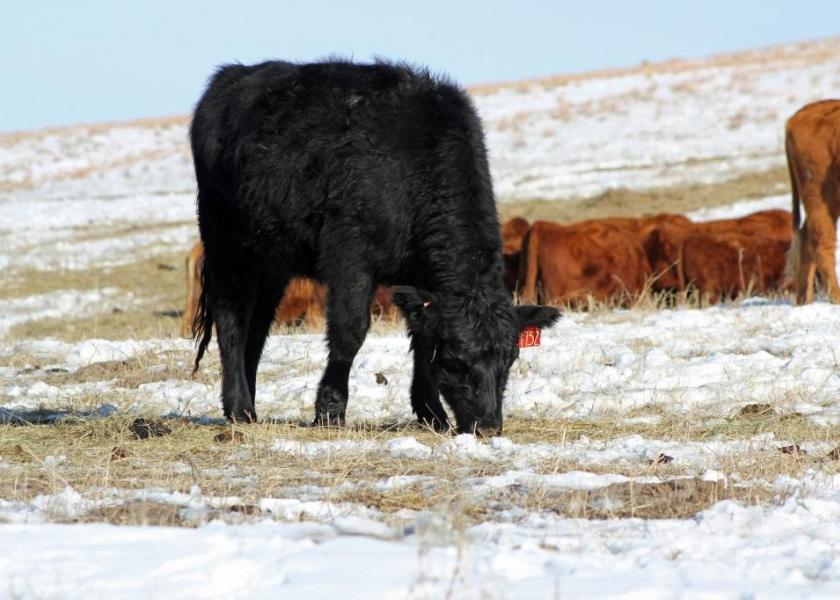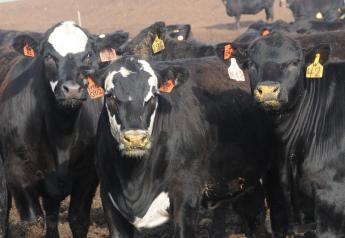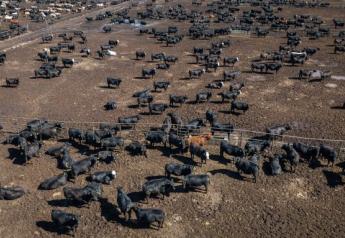So What if I Can’t Get Distillers Grains?

In recent months, the shortened supply of distillers grains has reduced the amount many producers have access to, and increased the price of that which is available. This has led many producers to evaluate what their supplement options are.
Can I just substitute corn for distillers grains for my bred cows?
The short answer is no. Typically, the reason production cows are supplemented is that they are consuming poor quality hay or range and need protein supplementation to support the microbes in the rumen so the microbes can digest the forage. Corn contains approximately 70% starch. Starch has a negative impact on the rumen microbes needed to digest poor quality forages. So, unless an additional source of nitrogen (which comes from protein) is also fed, the cattle will likely perform poorly if corn were substituted for distillers grains.
How expensive is it really?
Distillers grains is 30% crude protein and 108% total digestible nutrients (TDN) in forage based diets. Assuming a producer can still get distillers grains, but at a higher cost than previously purchased, how expensive is it compared to other feed resources? If a producer has to pay $195/ton for dried distillers grains bought and delivered, that is $221.59/ton of dry matter (195/.88, assuming 12% moisture). So for a ton of dry matter crude protein the distillers cost $738.64 ($221.59/.3, because it is 30% crude protein). If a producer bought alfalfa for a protein supplement and paid $185/ton delivered, and the hay was 18% crude protein, then it costs $215.12/ dry matter ton (185/.86) and $1,195.09/ton of crude protein (215.12/.18). While the distillers grains cost more than in previous years, it is still a more cost effective protein supplement than the alternative in this example. Producers should evaluate all alternatives based on nutrient content, and include any associated transportation and feed delivery costs.
Distillers grains is no longer available to me, what do I supplement?
Acceptable substitute supplementation for distillers grains depends on the class of livestock fed, the basal diet available, and the desired performance. Therefore, producers may want to ask extension beef specialists or educators for ration balancing assistance for each class of livestock to ensure substitutions meet animal requirements. If pregnant, non-lactating 1200 pound cows are in the last trimester of pregnancy, they would require about 1.86 pounds of crude protein and 12.6 pounds of TDN per day. If they were grazing unlimited dormant winter range, then supplementing 6.5 pounds/cow/day of the alfalfa in the example above would meet the cows’ need for protein and energy.
Supplements containing urea will also supply the rumen microbes with the necessary nitrogen and performance in gestating beef cows is acceptable when readily digestible structural carbohydrates are not limiting.
Forage testing hay or grass used for the basal diet will help producers determine how much supplement is actually needed, so overfeeding expensive supplements is minimized.







